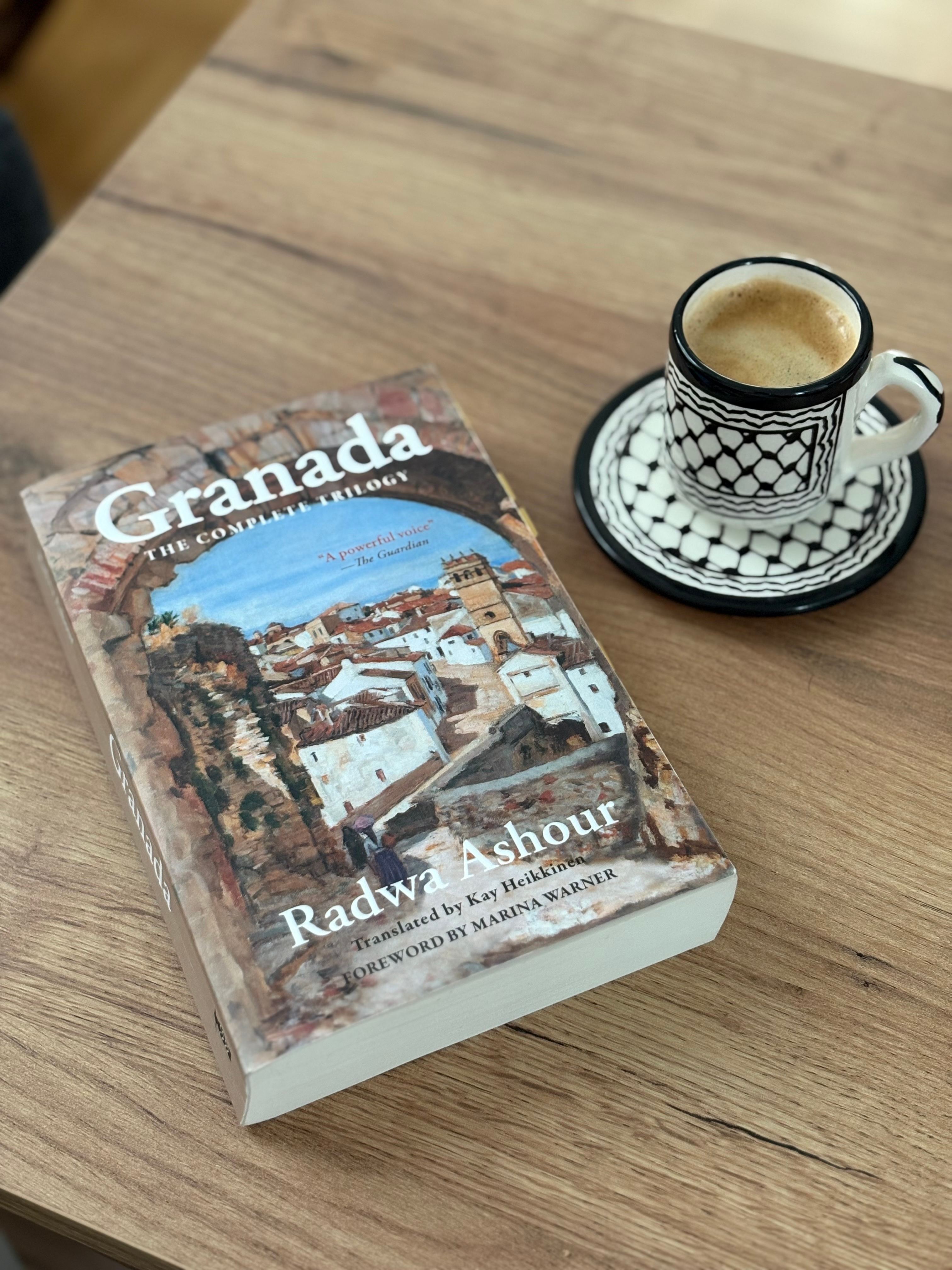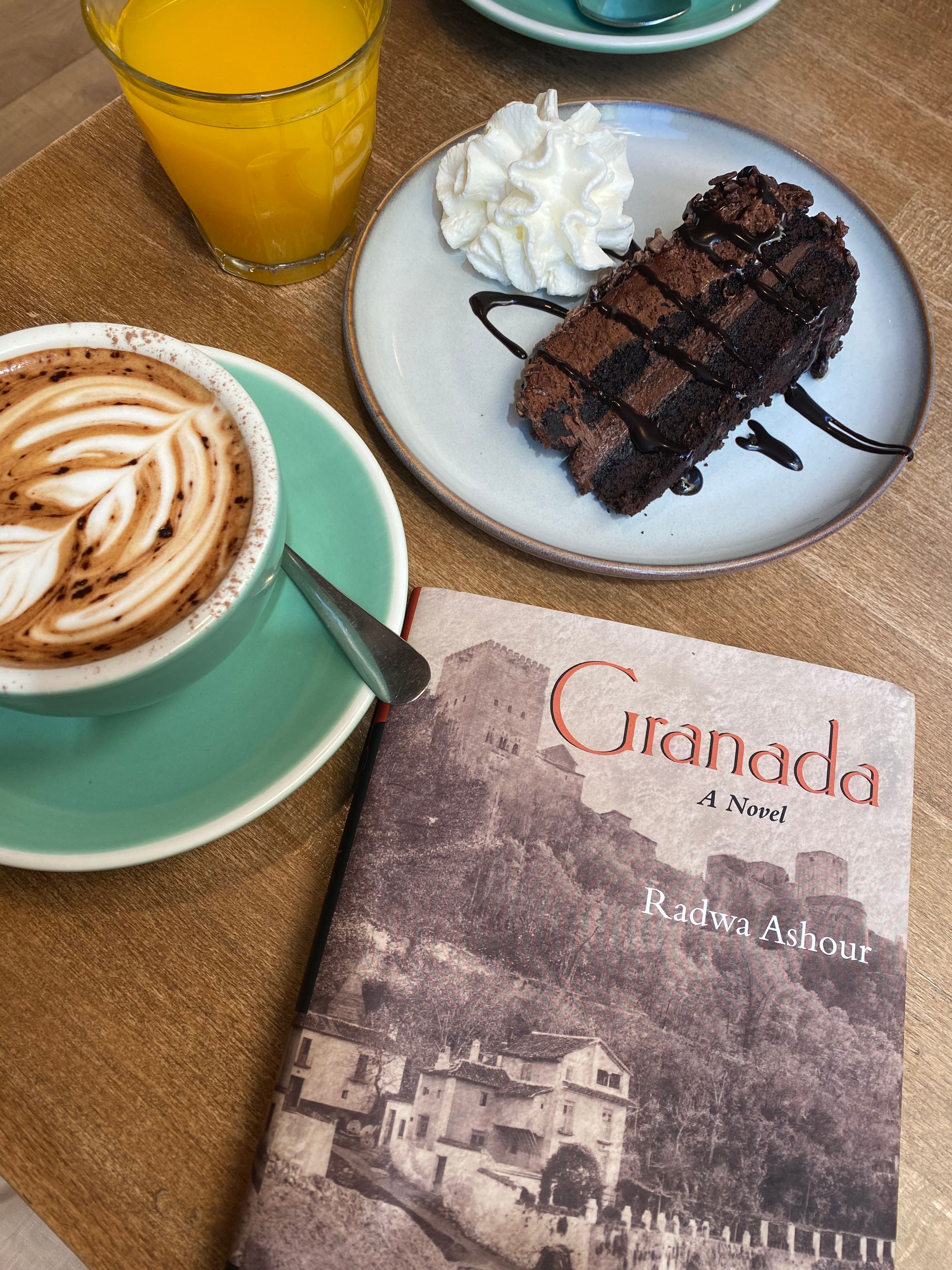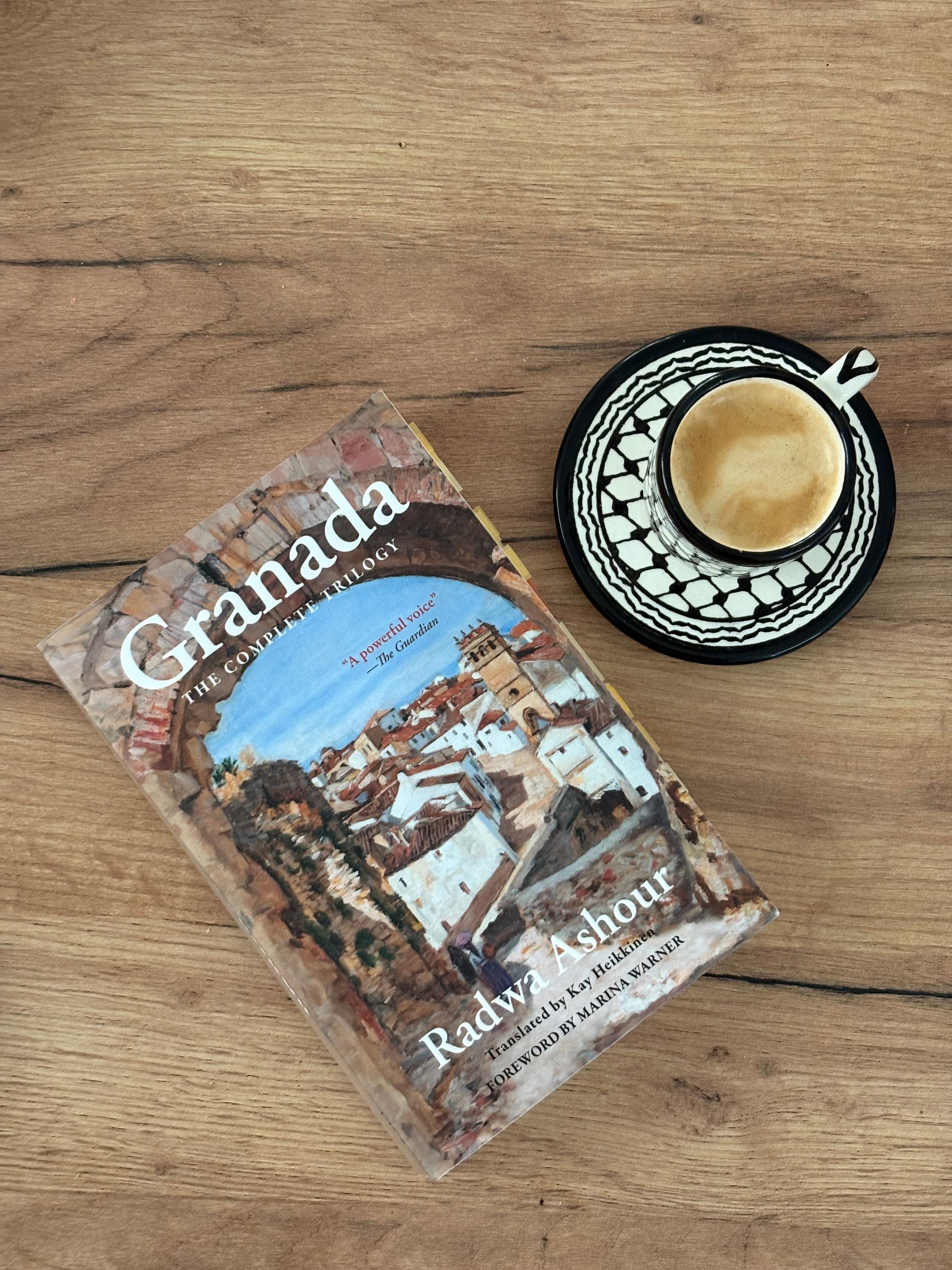Granada - Our last evening on this land
Anyone who knows me already understands my love for al-Andalus. I’m not entirely sure where this deep sense of connection comes from; perhaps it’s rooted in our shared heritage as European Muslims. So it’s no surprise that I’m drawn to books about that era, to step, even briefly, into the world of al-Andalus, though the visit often deepens my sadness.
Radwa Ashour’s Granada trilogy follows the extended family of Abu Jaafar, a bookbinder, as Christian forces conquer Granada, the last kingdom of al-Andalus. It is a multigenerational story that traces how different family members try to find their place in a world turned upside down: Arabic books burned, bathhouses closed, forced conversions imposed, under the ever-present shadow of the Inquisition.

Ashour paints a vivid picture of Granada’s bustling streets, where craftsmen work with care: the elegance of calligraphy and the art of bookbinding, the precision of shoemaking, and the central place of bathhouses in the community’s social life. Resistance takes many forms: sleepless nights spent hiding books, the quiet preservation of religious traditions, prayers whispered in secret.
The novel moves at a slow pace; perhaps not everyone will find that compelling, but I wanted nothing more than to linger on the hills overlooking the Alhambra, even if only for another heartbeat. It’s the kind of narrative that lets you hold on to hope while you read and connect to the characters, even as you know there is no happy ending.
I had the privilege of reading the first volume in Granada itself. I still remember the thoughts that came then: is what’s happening in Gaza a moment when history is repeating itself? Am I witnessing, in my own time, something similar to 1492 when Granada fell? And will this story, this time, find a just and merciful end?

I will end with the beautiful words by the beloved Palestinian poet:
“Soon we will search
in the margins of your history, in distant countries,
for what was once our history. And in the end we will ask ourselves:
was Andalusia here or there? on the land … or in the poem?”
— Mahmoud Darwish
